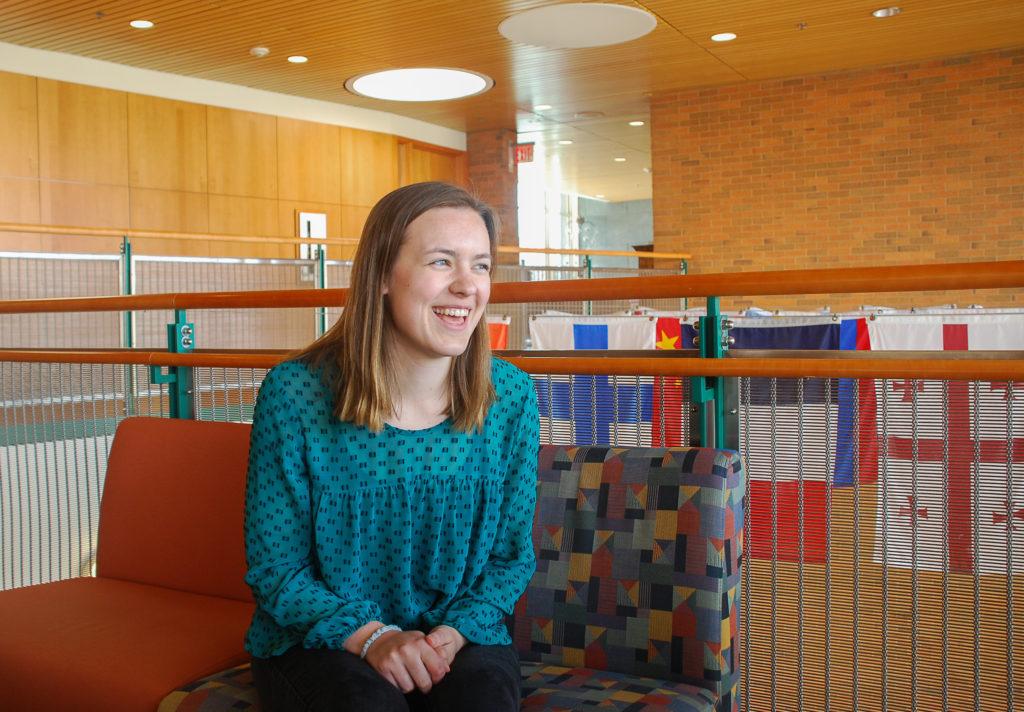By Abraham Teuber
teuberab@grinnell.edu
At Grinnell College, the education department offers a variety of opportunities for students looking to explore education through an academic lens. For students looking to pursue education as a career, a popular path is the Practitioner Preparation Education Program, a licensure track that equips students with a secondary teaching license following its completion.
To attain a license, students must complete several courses within the education department, in-class observation hours and special distribution requirements, which are atypical for Grinnell’s open curriculum. Students with a variety of academic interests can earn their license in addition to their major and specialize their certification with an endorsement from the subject area of their department.
Moya Roarty ‘19, a political science major who is receiving an endorsement for teaching government, elaborated on the ways in which her major has influenced her desire to pursue education.
“I am a poli-sci major and have definitely taken a really strong interest in policy, especially community and local types of policy too. … The more I got into that, and the more I learned about the policy making process, … I was starting to think about what ways I can be there enacting these policies. … What’s a deeper way to be involved in policy-making?” Roarty said.
The capstone component of the teaching licensure program is a semester of student teaching taken alongside a final seminar course that incorporates experiences from students’ in-class teaching into the curriculum. Students in the program are matched with secondary schools in the Grinnell, Marshalltown, Iowa City or Des Moines area, and occasionally the Twin Cities. Once there, they spend their time in a single classroom with a cooperating teacher who they observe and teach alongside.
Student teaching is typically completed the semester following commencement for fourth-year students. Anna Bell Hines ‘20 is student teaching in a biology class at Grinnell Middle School in the first half of her fourth year and then returning to campus to finish up the rest of her remaining credits.
“I think that kids are really uniquely smart, and working with middle schoolers, teaching them how to be good people, which I think is more important than being a good scientist, is a way to develop a community of adults that are more compassionate, and that’s really important to me,” Hines said.
While the student teaching program is a requirement to receive a license, the semester is unpaid and actually requires students to pay for their own housing, transportation and other living accommodations. Henry Jantzen ‘19, who will be teaching in a biology classroom at Marshalltown High School this fall, also highlighted the adjustment that goes into experiencing a school environment that is often completely unknown to the student teachers, as well as the challenges that an unpaid, full-time job presents.
“It’s an entire semester in which I really will not have the opportunity to get paid work, and so I have to make a choice. … Either I have to have savings, or on top of my full time job and the seminar, find other work. … I would really love to not be working an extra job on top of student teaching. If I could avoid that, that would be fantastic,” he said.
Jantzen also described the importance of training teachers who come from a variety of backgrounds that aren’t often represented, such as men of color, women science teachers and gender nonconforming people.

“There’s a lot of ink spilled about what we need in education … but one of the things we need are teachers who A, know their content area, B, can create understanding well and C, can be role models for their students in different ways,” Jantzen said.
While student teaching certainly comes with its challenges, Hines praised the opportunity to be able to pursue teaching as a career through a formal training program as opposed to more informal, fast-track prep programs or opportunities such as Teach for America.
“Being a teacher is really important to me. … [Student teaching] is a time commitment, but it really only helps you, and it’s so much better than fast teacher-prep programs where they assume that just because you graduate from a prestigious college, you’re qualified to teach in a classroom. … That’s just not the case, especially when those programs are majority white and are being placed in classrooms that are majority students of color, and it’s a disservice to students of color,” Hines said.
Roarty also pointed out her eagerness to explore the challenges as well as the unique rewards student teaching will provide.
“As I tell teachers and former teachers that I’m doing this, they always … talk about how it’s a challenging experience but also a really rewarding one, and I think whenever people talk about that, it’s always in a vague … type of way. I’m really looking forward to finding out, honestly, what do they mean, what is that feeling of teaching being rewarding?”























































